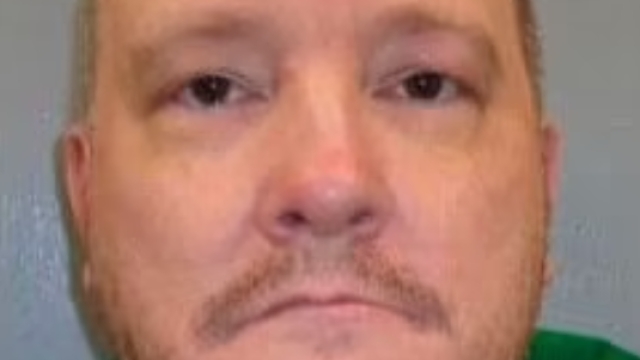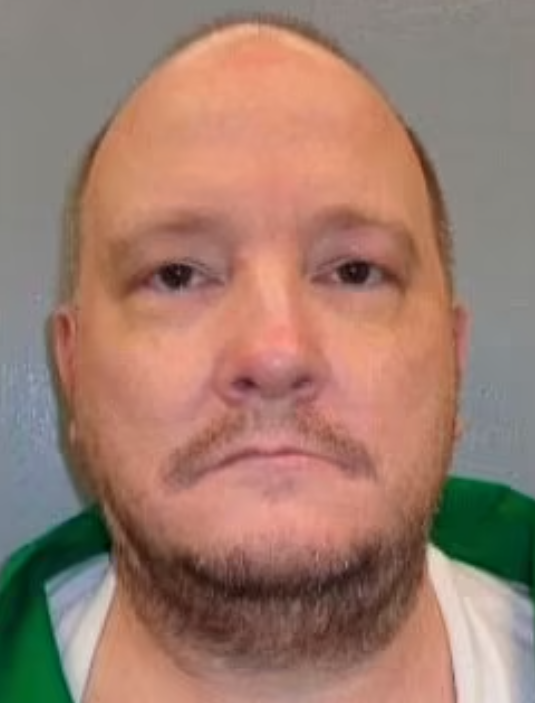
South Carolina Death Row Inmate Seeks to Hasten Execution, Sparking Debate on Mental Health and Justice

James Robertson, a 51-year-old South Carolina death row inmate convicted of the 1997 murders of his parents, has made a chilling request to a federal judge: to represent himself in court, a move that could expedite his execution. Robertson’s decision comes after a wave of executions in the state, including that of his best friend, Marion Bowman Jr., who was killed by lethal injection on January 31, 2025. The inmate’s plea has reignited debates over mental health, the ethics of self-representation in capital cases, and the broader implications of the death penalty.
Robertson has been on death row since 1999, following his conviction for the brutal killings of Terry and Earl Robertson in their Rock Hill home. Prosecutors at the time stated that Robertson blinded his father with bathroom cleaner before beating him to death with a hammer and baseball bat, then stabbed his mother. He allegedly staged the scene as a robbery, hoping to claim a portion of his parents’ $2.2 million estate. After fleeing up the East Coast with his girlfriend, he was arrested in Philadelphia, leaving a trail of evidence, including bloody clothes at a Maryland rest stop. His 1999 trial, broadcast on CourtTV, became a media spectacle, later inspiring TV specials and a true crime book.
In a one-page letter sent to U.S. District Court Chief Judge Timothy Cain on April 7, 2025—just days before South Carolina executed its fifth inmate in seven months—Robertson expressed his desire to drop his federal appeal and fire his attorneys. “Since no ethical attorney will withdraw an appeal that will result in their client’s execution,” he wrote, he was ready to represent himself. This move, however, has been met with resistance. Federal Judge Mary Gordon Baker ordered a 45-day delay, mandating that a different lawyer speak with Robertson to ensure he fully understands the lethal consequences of his decision. The lawyer is expected to report back by early July.
Robertson’s attorney, Emily Paavola, raised serious concerns about his mental state in court documents. She noted that Robertson has not taken medication for depression in three years, suffers from chronic back pain and a skin condition that exacerbates his depression, and has been deeply affected by the recent executions of five fellow inmates, which reduced South Carolina’s death row population from 30 to 25. Paavola requested a four-month delay for a full psychiatric evaluation to assess Robertson’s competency, arguing that his decision may be influenced by untreated mental health issues and grief over losing his close friend, Bowman. Prosecutors, however, suggested that Judge Baker could speak directly with Robertson to determine his ability to act as his own lawyer.
This isn’t the first time Robertson has sought to hasten his fate. In the early 2000s, he attempted to drop all appeals, telling a judge at the time that he believed a death sentence was preferable to life without parole. During a 2002 hearing, he referenced another friend, Michael Passaro, who had volunteered for execution, saying, “It hasn’t changed my view. What it did was it made me understand—enhanced reality a bit—to see my best friend go from one day playing cards with me to the next day not being here anymore.” Robertson added that Passaro had “taken a similar route that I’m choosing to take now,” a sentiment that reflects a pattern of resignation among some death row inmates. According to the Death Penalty Information Center, about 10% of U.S. executions involve “volunteers”—inmates who waive their appeals and agree to die.
The case raises profound questions about the intersection of mental health and the justice system. Critics of the death penalty argue that Robertson’s untreated depression and the psychological toll of 26 years on death row may be driving his decision, rather than a rational choice. The recent spate of executions in South Carolina—resumed after a 13-year hiatus due to drug shortages for lethal injections—has also drawn scrutiny, particularly after reports of a botched firing squad execution in April 2025. The state now offers inmates a choice between lethal injection, electric chair, or firing squad, a policy upheld by the S.C. Supreme Court in 2024.
Robertson’s history further complicates the narrative. Over the years, he has been disciplined for attempting to smuggle a cellphone into prison, and his relationship with his legal team has been fraught. Paavola’s refusal to withdraw his appeal, citing ethical obligations, underscores the tension between a client’s wishes and a lawyer’s duty to protect their life. Meanwhile, the prosecutor who sent Robertson to death row, Tommy Pope—now Speaker Pro Tem of the South Carolina House—offered a mixed perspective. “If you told me—be incarcerated on death row the rest of your life or just go ahead and go to the Lord, you know, I might choose the latter too,” Pope said. However, he also described Robertson as a man of “above average intelligence” who often tries to “work the system” and believes he is smarter than his attorneys.
As Robertson’s case unfolds, it forces a reckoning with the death penalty’s role in modern society. Is the system equipped to handle inmates with untreated mental health issues? Should inmates be allowed to hasten their own executions, potentially as a form of state-assisted suicide? And what does justice look like for a man who has spent more than half his life awaiting death? XMN News will continue to monitor this story, bringing you updates as Robertson’s fate—and the broader debate over capital punishment—comes into sharper focus.
